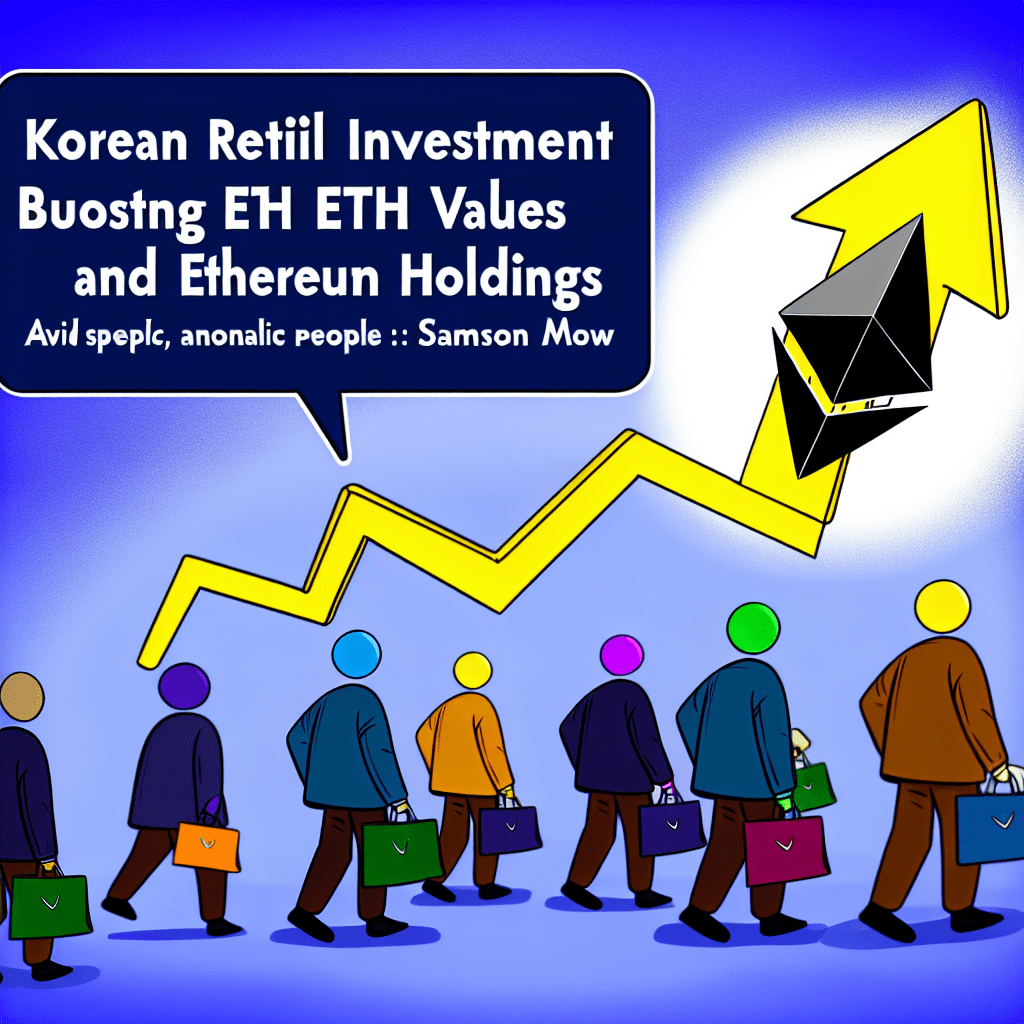Capital from South Korean retail investors is driving Ether’s price momentum and contributing to the growth of corporate Ether treasury firms, as the world’s second-largest cryptocurrency trades just 7% below its all-time high.
The primary factor keeping Ether (ETH) prices and Ether treasury companies stable is approximately $6 billion worth of Korean retail investment, according to Samson Mow, CEO of Bitcoin technology firm Jan3.
“ETH influencers have been traveling to South Korea solely to market to retail investors. These individuals are unaware of the ETHBTC chart and believe they are buying into the next Strategy play,” Mow mentioned in a Monday X post, cautioning that this trend “won’t end well.”
Upbit and Bithumb are the primary centralized exchanges (CEXs) utilized by South Korean retail traders.
In terms of Ether futures trading, Upbit ranked as the 10th largest CEX, with a trading volume of $1.29 billion over the past week, according to CoinGlass data.
Trading in crypto futures typically surpasses spot trading volume, thus wielding a greater influence on the price of the underlying asset.
Related: Japan’s new PM may be a boon for risk assets, crypto markets
Ether’s “Kimchi premium” indicates heightened Korean retail investor interest
Ether’s “Kimchi premium,” which reflects a higher price of cryptocurrency on South Korean exchanges compared to other platforms, also indicates increased demand from Korean retail investors.
Ether’s Kimchi premium jumped to 1.93 on Sunday, a rise from -2.06 on July 16, when Ether was traded below $2,959, according to blockchain data provider CryptoQuant.
This metric evaluates the price difference for Ether between South Korean exchanges and their counterparts.
Korean retail investors are notable players in the cryptocurrency market, as illustrated by Ether’s Kimchi premium, according to Marcin Kazmierczak, co-founder of blockchain oracle company RedStone.
However, Kazmierczak emphasized that this represents merely a portion of Ether’s overall momentum.
“Describing them as the primary support for Ethereum significantly underrepresents the network’s diversified global capital base, which includes sizable U.S. institutional investments through ETFs, corporate treasuries, and the extensive DeFi ecosystem reliant on ETH.”
Kazmierczak continued, stating that Ethereum’s strength is rooted in its “borderless nature,” merging Korean retail and global institutional participation.
Related: Aging boomers and global wealth seen boosting crypto until 2100
Mow’s comments come at a time when numerous industry observers have raised concerns about the viability of Ether treasury firms.
In September, Mechanism Capital founder Andrew Kang critiqued BitMine founder Tom Lee’s Ether thesis, contending that it exaggerated Ether’s value derivation from stablecoins and real-world asset (RWA) tokenization.
“Ethereum’s valuation is mostly a product of financial illiteracy, which, it must be noted, can generate a significant market cap,” Kang reflected in a Sept. 24 X post, adding that “the market cap derived from financial illiteracy cannot grow indefinitely.”
While “broader macro liquidity” has sustained Ether’s price momentum, it necessitates “significant organizational change” to prevent “indefinite underperformance,” Kang stated.
Magazine: Low users, sex predators kill Korean metaverses, 3AC sues Terra

